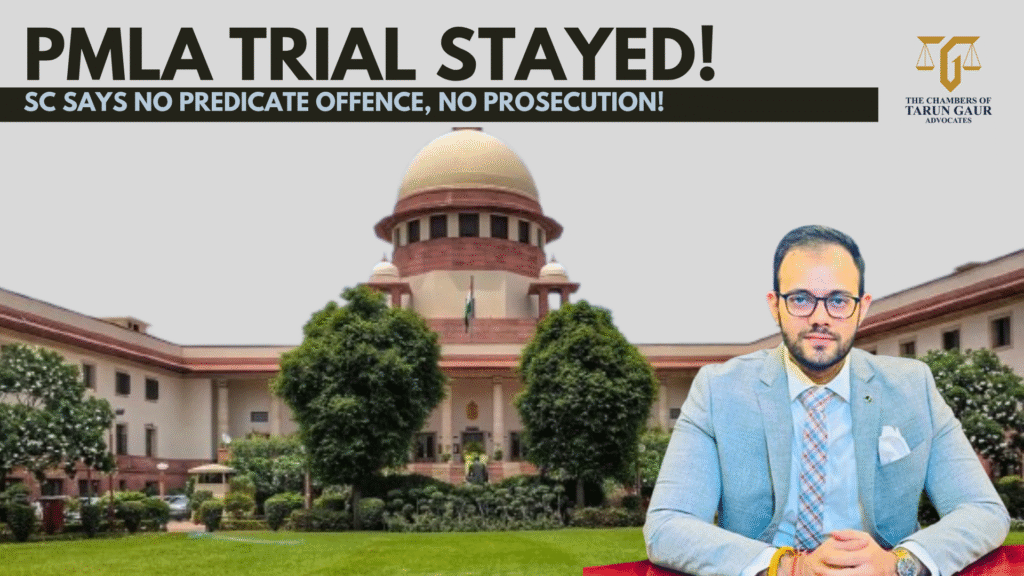In a significant step forward for clarity in the interpretation of the Prevention of Money Laundering Act (PMLA), the Hon’ble Supreme Court recently stayed the PMLA trial against four accused in a matter where no chargesheet had been filed in the predicate offence for over 7 years.
This development strengthens the judicial reasoning that a money laundering trial cannot proceed in a vacuum, especially where foundational allegations under the scheduled offence (predicate offence) remain unproven or unestablished.
Case Background:
In S. Srividhya & Ors. vs Assistant Director & Anr., SLP(Crl) No. 10113-10115/2025, the petitioners were family members of the erstwhile Chairman and Managing Director of Cethar Limited. An FIR was lodged by the CBI back in 2018 under Sections 120B, 406, 420, 468, and 471 IPC, on a complaint by Indian Bank. Based on this FIR, the Enforcement Directorate (ED) registered an ECIR and initiated proceedings under the PMLA.
However, notably, the petitioners were neither named in the predicate FIR nor shown to be in possession of proceeds of crime. They claimed to have no involvement in the company’s decision-making processes and yet faced continued prosecution under the PMLA — despite no chargesheet being filed in the scheduled offence even after 7 years.
The Supreme Court, while staying the trial against the petitioners, has issued notice to both the ED and Indian Bank.
Why This Judgment Matters:
This decision is not just a relief to the accused but a reaffirmation of procedural fairness. Continuing prosecution under the PMLA without a crystallized predicate offence can have grave constitutional and legal implications. The Supreme Court has previously leaned in this direction — as seen in:
-
Bharathi Cement Corporation Pvt. Ltd. v. ED: Telangana High Court held that PMLA proceedings should be stayed pending the outcome of the predicate offence trial.
-
S. Martin v. Directorate of Enforcement: Where the Supreme Court initially stayed the PMLA trial and later allowed it to proceed only with safeguards.
These cases reflect a maturing jurisprudence that upholds due process under the PMLA framework.
Final Thoughts by Advocate Tarun Gaur:
As an advocate specializing in money laundering litigation, I see this judgment as a much-needed reaffirmation of the importance of foundational proceedings in PMLA cases. The Supreme Court’s decision provides a meaningful check against misuse and arbitrary prosecution — particularly against individuals drawn into proceedings merely by familial or distant corporate associations.
If you’re facing prosecution under PMLA or white-collar crime investigations, consult with Advocate Tarun Gaur – Best Advocate in Dwarka, practicing in Delhi High Court and specializing in financial crimes and arbitration law.

